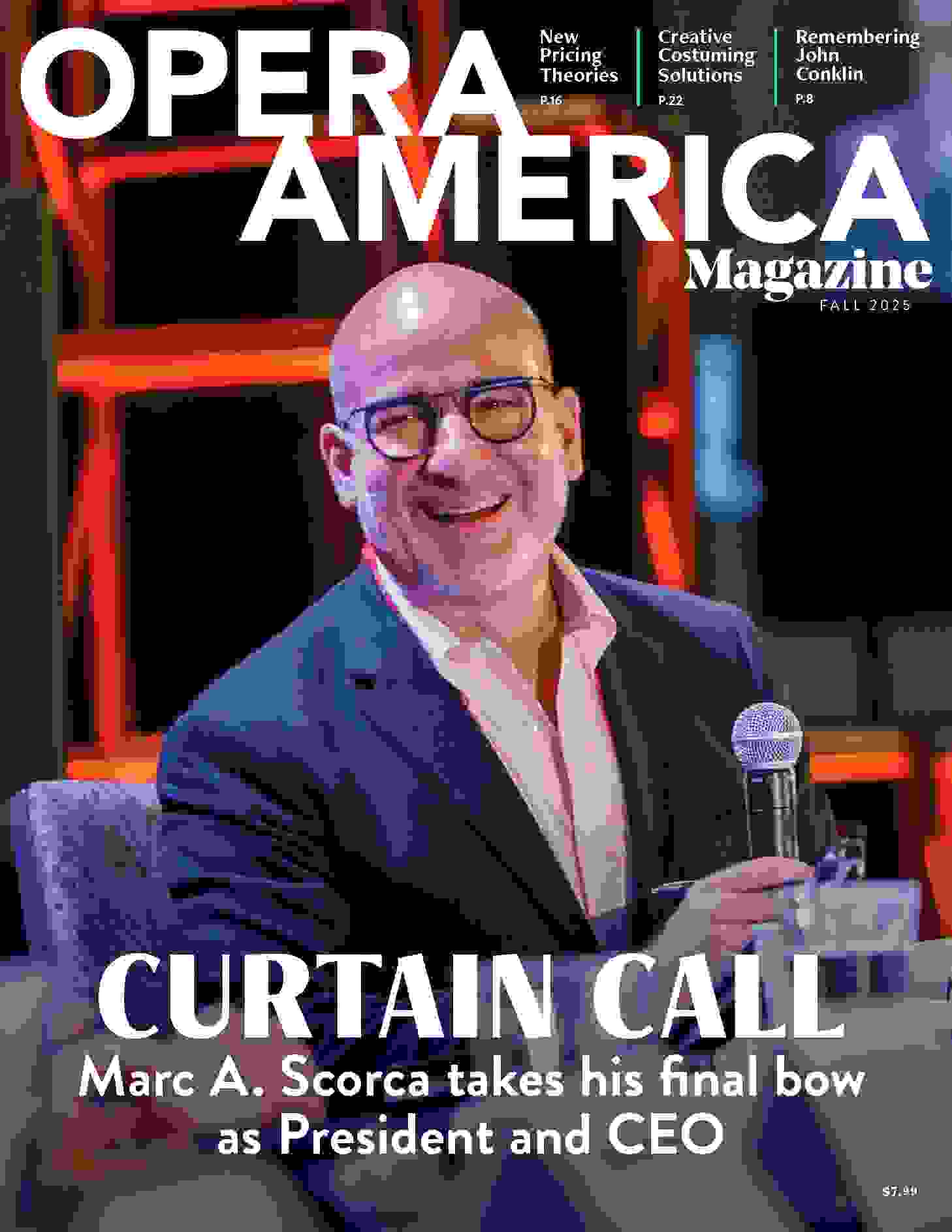Resumes and Cover Letters for Singers
The sample resume, repertoire list and cover letter included on this page were created by OPERA America staff utilizing the compiled advice of hundreds of professionals from the opera field. While these samples represent recommended standards from the field, remember that there is more than one way to create an effective cover letter, and these documents are intended solely to be a model as you create or review your materials. You should cover the sections listed below, but your materials should ultimately reflect your unique experiences and personality. (Organizations and individuals listed on the samples are fictitious.)
Resume
Your resume should be a one-page representation of your performance and training experience to date. This sounds like a simple task, but there are many things to consider. Auditioners, who will see hundreds of resumes, are looking for clues not only about your training and performing experience, but also about who you are as a professional. Typos and misspellings can be an indicator of your thoroughness in preparing a role. Resume exaggerations can be viewed as deliberate untruthfulness (not a good character assessment), and missing information can raise flags.
In creating this essential document, please consider the following outline:
- Contact Information Header
Every resume and repertoire list should include your name, voice category and contact information (e-mail address, phone number and website address), including a digital headshot. Utilize this header on all of your materials in case they are separated. - Performing Experience
Every resume should prominently feature a chronological list of complete roles performed to date, with the most recent date at the top. With each role, include the opera title, composer (in the case of contemporary or lesser-known works), organization where the role was performed and year performed. - Training
Your resume should highlight your training experience, including both academic and professional training as it relates to a career in opera. If you have participated in any professional training programs, please include that information and be specific: which program(s), at what level(s) and in what year(s). Even if your performing experience section alludes to this information, spell it out. List names of voice teachers, coaches and other professionals. Consider this section comparable to the reference list on an administrative resume. Only list professionals who would be willing to speak favorably about you. In other words, don’t list every masterclass teacher you have ever worked with. - Personal Information
Feel free to list opera-related skills, including languages, instrumental, dance/movement training and theater experience. - Repertoire List
List the 4–6 arias that you are prepared to perform for a current audition by aria title, opera title and composer. Make sure your contact information header is on this list, as well. - Digital Versions of Your Materials
To maintain your formatting and to make your materials easily open on all computer systems, save them as separate PDF documents, with your name in the title, for digital uploads to applications and auditions. Examples: CashJohnny_resume.PDF or Soubrette-SallyRepList2017.PDF
Good Singer Resume
Good Repertoire List
Bad Singer Resume
Bad Singer Resume ‒ With Notes for Improvement
Cover Letter
While your resume is a presentation of facts, your cover letter should be a personal introduction. This is the place to address any gaps in your resume or changes in your fach. The cover letter should clearly indicate which audition opportunity you are interested in, as companies often run simultaneous auditions. Because you want to make sure that your application is being measured against comparable talent, clearly state that you are interested in the upcoming chorus, training program, education ensemble or mainstage audition, as applicable.
The ideal cover letter also includes some indication that you have done your research into why this company and/or opportunity is right for you. Explain your connection to the company or the community. Highlight your experience with a role they are casting or an opera they are planning for the future. Mention a known professional who has worked with the company. (Again, only do so if the person mentioned would give you a good recommendation. It is a common courtesy to ask permission to use the person’s name.)
Indicate what materials your package includes (resume, photo, application, recording, etc.). It is recommended that you only send the materials that are requested. In the instances of a cold mailing, it is appropriate to only send a cover letter and resume. If you have other materials (reviews, recordings, etc.), indicate in the letter that you can make them available upon request.
Perhaps the most important thing to do in the cover letter is to address the letter to the correct person. If responding to an audition announcement, follow the directions in the listing.
Some guiding principles, for both your cover letter and resume:
- Be accurate: Don’t guess if you’re unsure how to spell a name, an opera or the correct name of the organization.
- Proofread: Proofread forward and backward, literally.
- Be honest: Don’t embellish your experiences.
- Keep your materials up to date: Keep a copy of your current resume on your computer, and add and delete any relevant experiences as they occur.
- Provide clean and concise materials: Your resume and cover letter should both be on high-quality 8½’’ x 11” paper.





